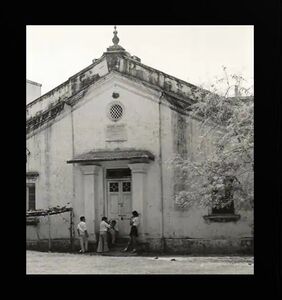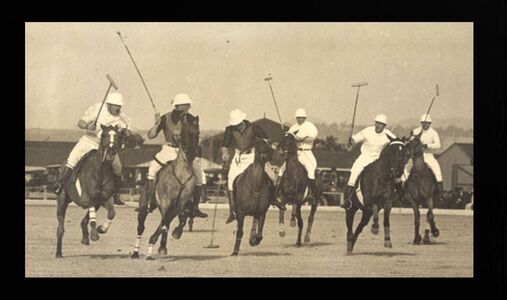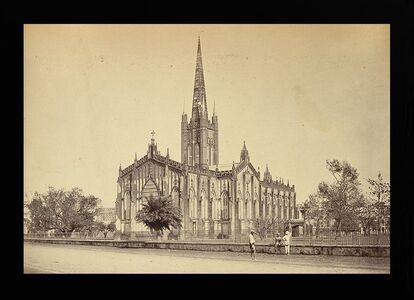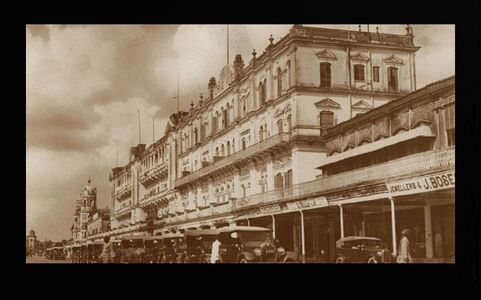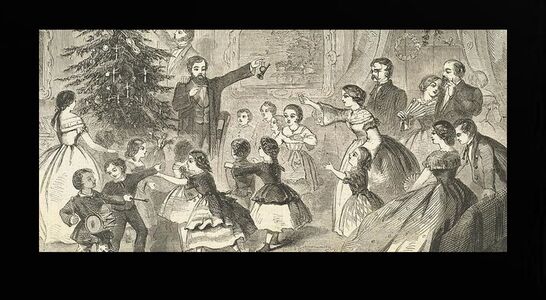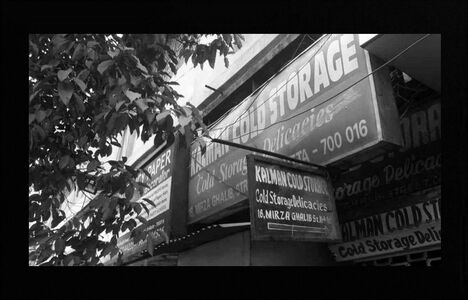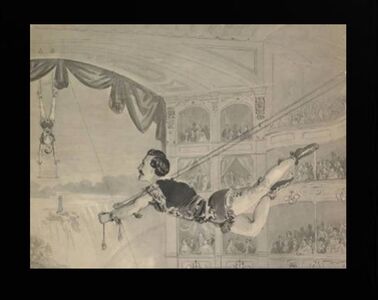Nirmal Chandra Kumar was an antiquarian and visited the different second hand book shops at Free School Street for Jewish ephemera: Judaica print, Judaica Old Litho Die Cut, Bar mitzvah cards, Vintage Hebrew and Yiddish Letters. Earlier Free School Street was known as Jaun Bazaar Fourth Lane, changed due to the Free Armenian School on the same road. In the 1950s the maidan stretched green and wide as far as the eye could see, the only interruptions was the Victoria Memorial and St. Paul's Cathedral and of course, the distant stand of the race course at the far end. All along Chowringhee stood elegant buildings housing institutions that bore testimony to that gracious era: The Grand Hotel where guests could dine on Turtle Soup; the Great Eastern Stores where mothers stopped for groceries and off-course Kalman Cold Storag (without the ‘e’ as was spelt in their license by mistake) in Free School Street, where Kalkman Kohary himself presided handing over cold cuts to the and wide-eyed children, savouring the delicacy given to them by the owner of this cold storage as their parents waited for the assistant Bishnu Pada Dhar keeping an eye at the ham slicer as its prepared Andes sheared off paper thin slices of Danish ham or cut streaky bacon to precisely the width preferred. Kumar during his visit to Free School Street would wait to get his packet of ready cold cuts of Ham and Salami.
During Christmas in Calcutta there would be Polo at the maidan, picnics at the zoo and visits to the circus. In 1930 with one of these many circuses that ran in town, came Kalman Kohary, a Hungarian trapeze artist who performed in the Russian circus. At the end of the season Kalman found himself without a job and without a country to return to, since by then his homeland, Hungary, had slid behind the Iron Curtain. The Austro-Hungarian Empire collapsed after World War I, and the subsequent Treaty of Trianon established Hungary's current borders, resulting in the loss of its territory, and its population. Following the tumultuous interwar period, became a satellite state of the Soviet Union. So he got his act together, got married to a Burmese lady and branched himself into his second career and started a Charcuterie on Elliot Road at his home.
Sometime in the latter half of 1930s, when Subhas Chandra Bose was the Mayor of Calcutta, he applied to the city Corporation and got the Municipal License to sell pork, chicken and beef under one roof. Here he sold smoked hams, sausages, liver pate, liver and bacon. His wife made the mix sausages and soon the little Charcuterie enough to find a new place on 18 Free School Street where he ran it for more than three decades, till he passed away in 1969. For some time his Burmese wife tried to run the establishment with Bishnu Pada Dhar but as per his husband’s death wish handed it over to him when she decided to leave the country.
Earlier this January, just after the rush of Christmas and New Year and as the line for Turkey and Stuffed Duck receded, the Dhar family that ran the Kalman Cold Storag, which used to sell pork and beef under one roof, decided to turn the establishment into a store for ladies’ dress.
Unlike many iconic food stores in Kolkata, Kalman was not making a loss. Rather the opposite. “Our customers and profits were steady,” said Agamani Dhar, the owner. Joy Ghosh, the manager, also a family member, explained, “An unusual problem started over the last year. Hindu workers refused to touch the beef and Muslims the pork. This never was a problem previously.”
The problem turned acute last October, as Joy Ghosh explains. “The old workers, who used to process the raw meat, were retiring, and the new workers were refusing to touch the meat,” he said. Agamani Dhar admitted that they were “not adept” in handling the shop in the absence of trained hands.
That, however, offers little solace to their clientele. Many were crest fallen. During Christmas and New Year there used to be a 100-metres long queue outside shop. It is an irony to shut a shop like this for a problem like this which was never in Calcutta. Calcutta is always known for its cosmopolitan nature
Kalman would supply to elite members-only clubs and celebrities in the city. They are all upset. Actor and film director Anjan Datta was quoted saying: “The variety of Kalman’s meat also tells a story — a story of the city’s inclusive character [where] no one’s really an untouchable. Kalman was not just a ‘meat- shop’ it is part of the city’s cosmopolitan character. A part of it’s all religion structure. When you stood in the line at Kalman’s there were Christians, Hindus, Jews and Muslim and this made it unique. This is the Calcutta I knew. One of composite mixed culture. This is what we will lose.”
Radha Prasad Gupta, the Anglophile and an authority on authentic Bengali and Anglo- Indian Food was a customer of Kalam. Satul Babu as R P Gupta was known as had mentioned in one of his writing that the establishment of Kalman, a Hungarian Circus Artist, which is perhaps the smallest shop on Mirza Ghalib Street, the current name from Free School Street, was the quintessential hub of cosmopolitan Calcutta culture. Calcutta 16 around Park Street stretching to New Market, Trina and Whiteaway, Laidlaw & Co was a part of Anglo Culture. Free School Street is largely inhabited by the ethnic community of the native Bengali people. The Armenians settled in a block close to Free School Street, which even to this day is called Armani-para. The neighbourhood lined with enterprises selling long-playing records, old books, gramophones and dress materials was also a famous haunt of the American GI’s during the Second World War.
Helen Thakur nee Mayer, now 73, a Jewish lady married to a Bihari Thakur, living in Ripon Lane, narrated how in 1958 she knew Tamara Kohary, the daughter of Kalam when they studied together in Loreto School at Elliot Road. The Kalams lived nearby at Elliot Road and after school they used to stroll to the Kalman Store where they used to enjoy cold cuts from the shop. She remembers them as a genteel family. Kalman Kohary was also a wrestler and took them to watch wrestling matches at the New Empire. Kalman knew many languages among them Hindi and Bengali. They were Roman Catholic and visited the church every Sunday.
Nondon Bagchi the man who makes 60's Rock as he plays what he significantly terms as the ‘Rock Music of the Woodstock Generation’ and a foody who wrote on the subject much before the food-blogs was a regular at Kalam. Where would you get authentic European Meat, other than in Kalam? Beef, Pork, Mutton, Chicken products all under one roof. Meat Loaf, Frankfurters, Hungarian Sausage, Ox tongue, Spiced Beef, Salted Beef, Turkey. And what about the Hungarian Sausage. Other than being a tribute to Kalman Kohary but more being an unusual product. They are basically smoked sausages with paprika, salt, garlic, black pepper, allspice, white pepper, caraway, nutmeg, zest, marjoram, cayenne pepper and sugar.
Every winter, Mohammad Yanus comes from Kashmir to sell walnuts in Kolkata and stays on the Mirza Ghalib St. “I was so fond of Kalman’s salt meat,” he reminisced. “Though they sold pork [yet], I used to pack a few pounds [of beef] each year while returning [to Baramulla],” reminisced Mohammad.
Aryani Banerjee in her book Shadows Of Solitude posts in facebook: I've been a loyal customer of Kalman Cold Storage, so much so that I wrote about it in my second novel Shadows of Solitude that released last year. I wanted the shop to exist forever, as it was, the narrow space with three large freezer boxes, rate charts glued on the wall and the aroma of freshly prepared meat.
...Until this morning, when I got the news that Kalman Cold Storage has pulled down its shutter forever, I sat surprised in the bus on my way to work, and quietly sobbed. For everyone who knows what it was, knows it's a big loss.
For anything to attain the status of being legendary, it takes time, and goes without saying, it requires patience, perseverance and hard work. The ‘mythical piece of paper’ that gave Kalman to sell all varieties of meat since 1937 for more than three decades, until time got the better of him and he passed away in 1969. It would be rational to think that such a reputed – iconic, as many would say, would be overseen and managed by generation after generation. But things have panned out differently in this case.
The shop was sold to Bishnu Pada Dhar in 1970 by the family of Kalman Kohary as they moved to Australia. On the demise of Bishnu Pada in 2011, his wife Ruma along with his brother Joy Ghosh continued the tradition, latter to be joined by the daughter Agamani Dhar. From the onset of this year, with labour problem, the family which was bestowed upon with running the cold storage, decided to turn the establishment into a dress material shop for women and hence commenced the demolition of yet another legendary establishment, in the city of joy.
The problem which they faced is at a much cellular level and petty. Hindu workers at the cold storage started to refuse touching beef and the Muslims refused to touch pork. This is an issue, which seemingly has no end and is present in a big way in our society nowadays.
We Indians claim our country to be multi lingual, multi-cultural and what-not, but at a core level we are still backward in our way of thinking, especially when it comes to religion and what to eat and what not to eat. This problem being faced by the unit skyrocketed last October when, most of the old workers started retiring and the new ones started refusing to touch and process the meat. Loyalists of the meat store flocked the area once the demolition commenced and were hurt at the thought of never being able to indulge in the fine meat that the place served, ever again.
Even the current generation swore by Kalam. Neel Dutta, music composer and singer continued the tradition from his father and spoke highly of the Chicken Roast and Stuffed Pig. He added that many time they have bought the Chicken and gave to Kalam for dressing and stuffing and taking it home to roast. Abhishek Kumar, taking from his grandfather was a great fan of the Beef Stake and said that he ate the last Roast Beef Sandwich at Lighthouse Café near home where the beef was sourced from Kalman. Gargi Gupta, like his parents who were perfect hosts often visited the shop on her way back from Tata Steel to carry home cold-cuts and all sorts of meat for the many foreign visitors at home in the tradition of R P Gupta. But all hope is not lost as Agamani said that they will try to get processed beef only on the basis of orders on phone in small amounts.
Maybe Kalman Kohary, who rests in the Lower Circular Road Cemetery about a kilometre south of the shop, won’t be very unhappy with the arrangement.
With the passing away of Kalman, Calcutta loses another of its intangible heritage. I would like to recall the words of Walter Benjamin, the German Jewish philosopher, cultural critic and essayist, from his works on the Arcade Project, who speaks of an ‘aura’ of an establishment that is expressed in every site's own “trace“ and its meaning of the history of the place, which comes to expression in traces of age, the “scars of time“.


